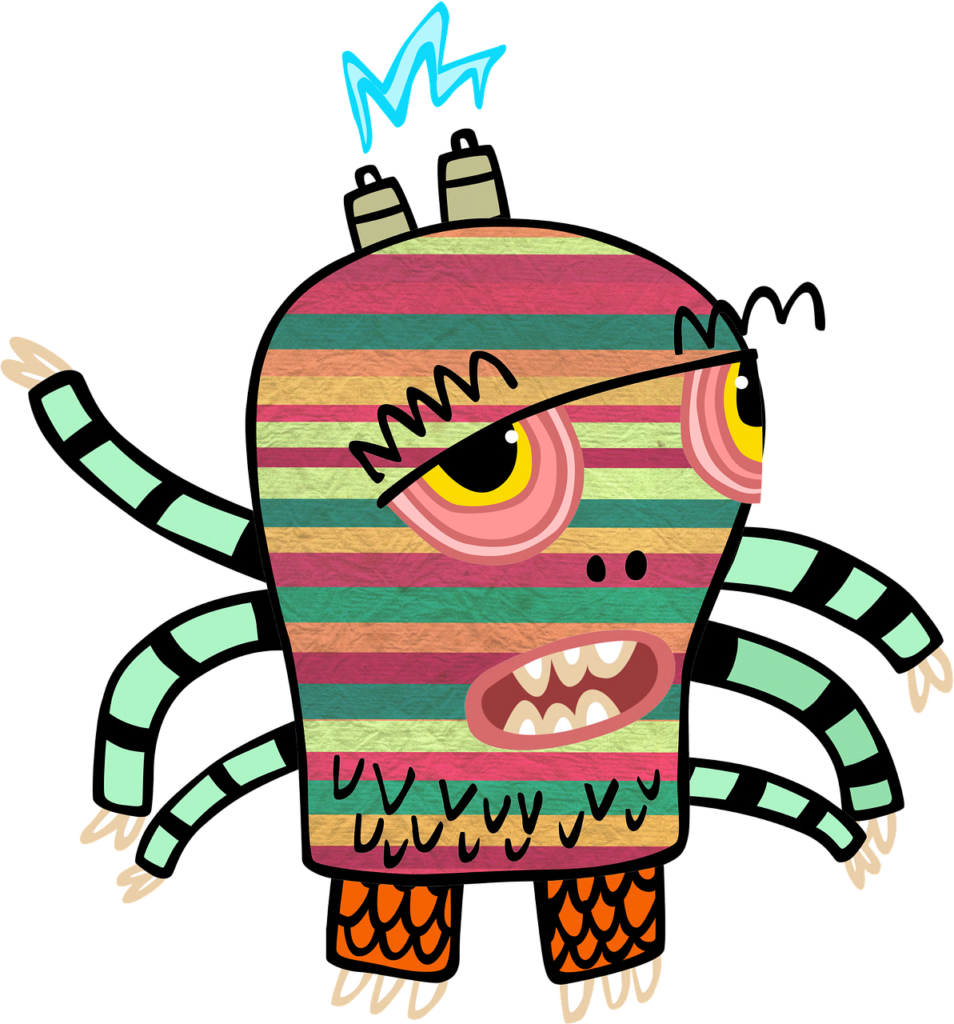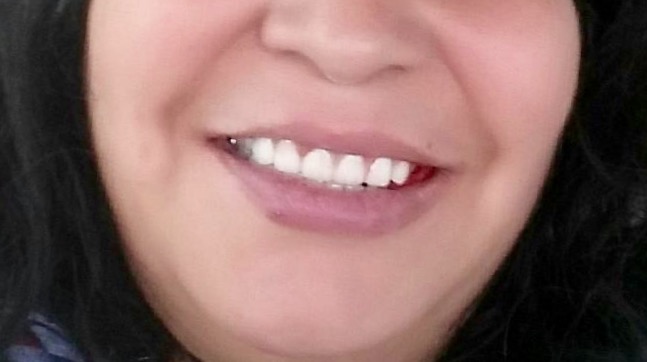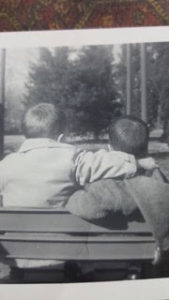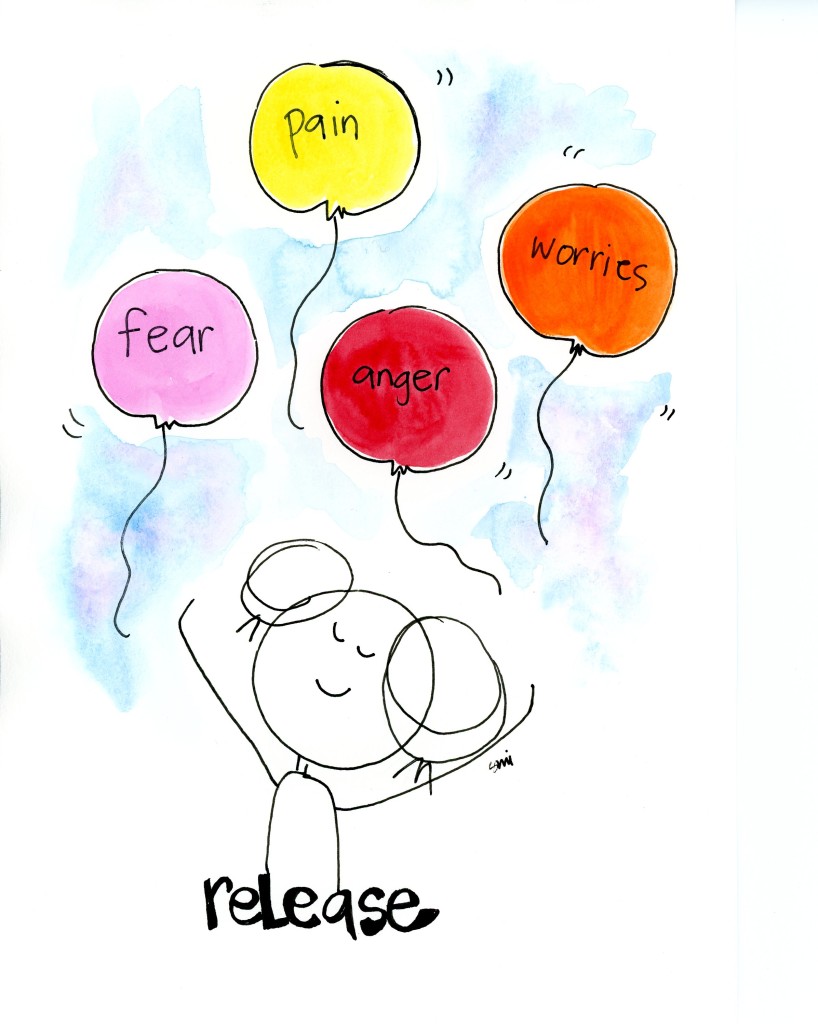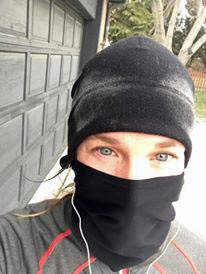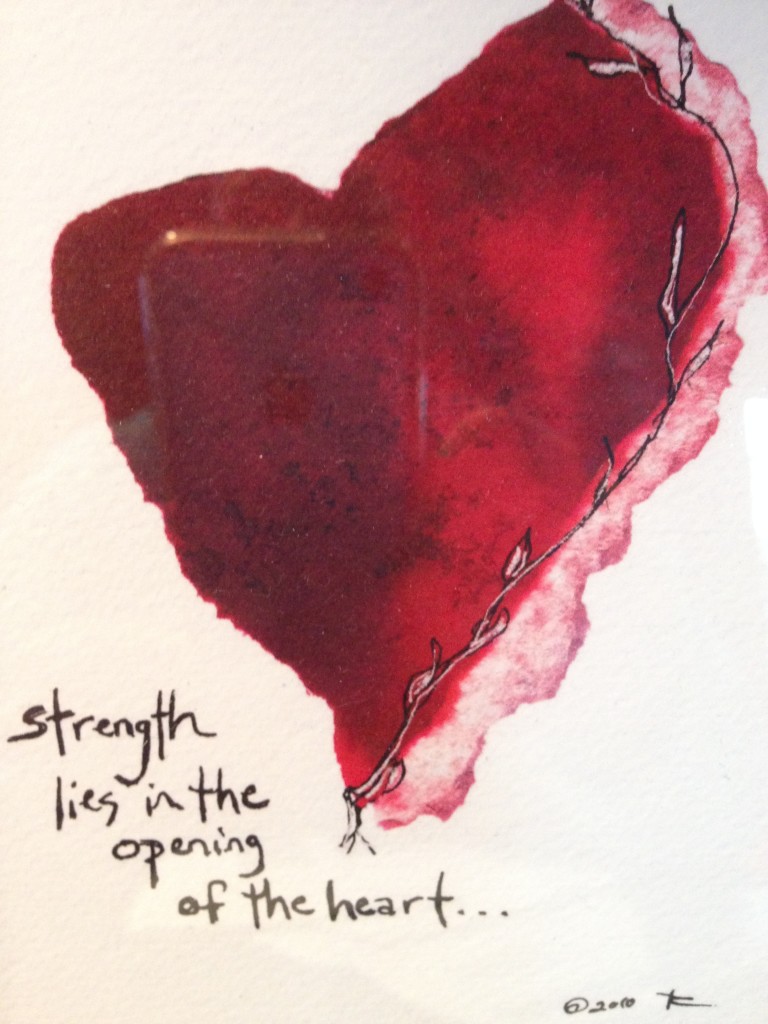A child comes crying to a parent in the night about a monster under the bed. Instead of admonishing the child to stop crying, ignoring or dismissing the problem as silly, we hold our crying child and then look under the bed to face the monster. Wonder Anew is a similar invitation. Only we hold ourselves with that same loving-parent tenderness as we look. Amazing as it seems, the act of looking is like getting a flashlight to look under the bed to see what our mind creates and can transform. —Work With Your Difficulty
What is your difficulty?
My teeth are broken. I feel like a silent monster.
Due to my bad dental problems, I have other medical problems. I have elevated white cell counts and perhaps coronary artery disease. I had to do an angiogram.
What feelings arise?
Deep sadness.
Unhappy.
Afraid.
Afraid to talk. I feel judged. My broken teeth silence me.
Embarrassed.
I’m afraid of being embarrassed when I laugh out loud because people will see my teeth.
I feel undesirable.
Less than. Not worthy. I have low self-esteem.
I feel like I’m a monster. You see those kid shows and you see monsters with horrible teeth that make them even scarier and you don’t want to look at them —that’s how I feel when others look at me.
How does your difficulty affect you?
I keep my head down when I talk.
I don’t like meeting new people.
My teeth made me weary of going out. My physical appearance turned me into a recluse. I was never a shy person until my teeth got broken.
I am in recovery from drug and alcohol addiction. I injected meth and cocaine.
When I smile and someone sees my teeth, people ask what happened to your teeth. If someone who I’m not close to asks, I say, “It’s a long story” or “I got in a car wreck.” If someone close to me asks, I say “physical abuse.” Most people think the damage is from meth. The original abuse could have been from that and cocaine, and then when the physical abuse happened, my teeth were weak.
Once when I had a toothache my face was swollen up to my eye, I went to the emergency room and they had to keep me overnight to give me antibiotics.
Before recovery, I’d go to the ER and they gave me pain pills, either Tylenol with Codeine or Vicodin (hydrocodone). Sometimes I’d have to stay overnight and get antibiotics.
What is your part in your difficulty?
Not having courage and the willingness to change my appearance.
I thought that this is what I am. I felt less than. I didn’t think I was worthy of $5000 to get my teeth fixed. Getting my teeth fixed seemed like an impossible goal.
My part is self-care. My addiction took everything. I didn’t have the willingness to get my teeth fixed because it wasn’t a priority. Drugs and alcohol were more important. Once I was in recovery it took a little while to recognize that I was worth having the confidence that a smiles brings me.
What shifted in your perspective, feelings or thinking about this difficulty?
My perspective of me changed. My self-worth was slowly changing because I was changing and in recovery.
That’s what recovery helps—it changes my perspective. My recovery friends loved me until I could love myself. I felt their love. A big void inside of me was filled by my new recovery family of choice.
Then I got $1500 from a car wreck. At first, I thought that money would buy a lot of beads and yarn because I like to make jewelry and knit. Then I had a thought I could save this for my teeth.
But what really changed my mind and made me start doing what I needed to do to try to get my teeth fixed had nothing to do with my teeth. You know what started me to really think about taking care of myself? It didn’t start with my teeth. It started with my diabetes. My daughter asked me if I was taking anything for my diabetes. I told her I wasn’t taking my medicine. Soon after, I was with a friend who I call my angel. I told this angel who has the same first name I do what my daughter asked and then I admitted that I wasn’t taking my insulin. My friend looked at me and said, “I’ve been wanting to talk to you about that.” Then my friend started crying. “I’m worried about you. I don’t want to lose you.”
That’s what got to me.
I didn’t want to be that kind of mom and friend. To see my friend cry about losing me got into my heart. I’m tearing up as I say this now. She loves me and I could feel it. My friend loved me more than I loved myself.
So I went to the doctor.
Do you know what the doctor said? “Your blood is like tomato paste running through your system.” The doctor said I would likely have a heart attack or stroke.
What are you learning about yourself, the situation, and other people?
I always have bad breath. I could brush my mouth and teeth and an hour later I’ll have bad breath because of the rottenness in my teeth. I have toothaches—excruciating pain. It is like having a sticker in your foot and every time you have to go somewhere you have to walk on that sticker.
Broken teeth hurt.
Eating, drinking and breathing out of my mouth hurt.
My friends have straws for me to drink so that water won’t touch my teeth. If my drink is really hot or cold, it feels like a lightening bolt shot off the top of the roof of my mouth to my brain.
My whole world is centered on a toothache. If I have a toothache I have to wait and save money to go to the dentist. I found out that our county has a low-income dentist.
I was with someone I trusted who had good teeth and I told her my teeth are going to be polished like hers. I stare at her teeth. I wanted good teeth.
I realized I couldn’t get my teeth fixed until I got my diabetes under control because we never lie to doctors, right? I could die if I didn’t get my numbers down. They checked my sugar level before my dentist procedures to make sure I was telling the truth about my sugar number.
They check my blood pressure. If I have high blood pressure, they won’t pull my teeth.
How do you choose to work with or respond to your difficulty?
I choose to love and take care of myself.
Someone gave me $300 when I said I want to fix my teeth. I gave that money to my angel friend who put it into a savings account for me. My teeth were supposed to cost $2000. I started saving my money. I told my angel friend, “I don’t know if I can spend that money on my teeth.” And my friend said, “No, you’re doing this, you’re done.” You know back in the day to drop $700 on dope was nothing, but I didn’t spend money on shoes I need. I am learning to love myself. And that I’m worth new teeth.
I found out that I could get my teeth pulled for $15 a tooth, so I had enough money. You know even though that money was available for my dental care, I don’t think I could hand over $2000 without my recovery and the encouragement I’ve received from my friends.
TIME PASSED.
I decided to get my teeth fixed.
I made one simple step. I called a dentist. It started with a phone call. I got help.
My teeth are now fixed. I’m more confident in the words I say. I feel more loved and accepted.
I feel seen and heard.
Jealousy of other people’s smiles is gone.
It is an amazing feeling to smile now and see me instead of my broken teeth. After getting my teeth fixed, I don’t think there is anything I can’t accomplish. It helps shut the door of the emotional pain of my past.
Now I smile at everyone I pass.
How might you use what you’ve learned from this experience in the future?
I learned that when I’m afraid, it just takes taking one small step in the right direction to change my life.
I want to use my experience to help someone else. I know how hard it is to change habits and thoughts. I know how expensive it is to get teeth fixed. I hope my sharing helps someone else believe they can laugh and smile again.
Michelle B. The United States
